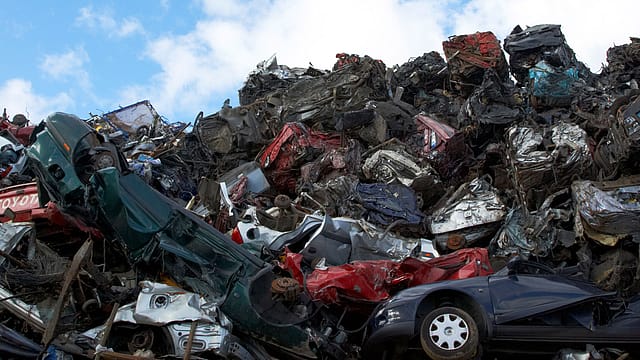Tough ride ahead for new scrappage policy
ADVERTISEMENT

The vehicle-scrappage policy announced by Prime Minister Narendra Modi on Friday will act as a booster to the reviving automobile industry in India and give birth to a recycling industry. However, it will hit the business of auto component suppliers—largely in the unorganised sector—and roadside mechanics. Since the incentives to promote scrapping of old vehicles and buying new ones are estimated to be around 10-12%, it will have an initial impact on the cost of rural logistics, experts say.
Also known as the Voluntary Vehicle Fleet Modernisation Programme, the policy states that commercial vehicles over 15 years old and personal vehicles above 20 years old will be scrapped if they fail the fitness test. This will create a new set of vehicle buyers and in turn help improve the consumption of metal, largely steel and aluminium. The automobile industry is expected to grow 20% this year. However, it will be much lower than the 2018 sales numbers.
One of the early entrants in the vehicle recycling business, Mahindra MSTC Recycling Private Limited (MMRPL)—a joint venture between Mahindra Intertrade Ltd and the government enterprise MSTC Ltd—plans to expand its business to 20 cities by end of this year. "We have three-modern recycling facilities operational in the NCR, Chennai and Pune regions and we have presence in more than nine cities across India," said Sumit Issar, managing director of Mahindra Intertrade. The company has a larger plan for expanding its footprint to 200 locations across the country with 25 recycling units by 2025.
"The fitness tests will ensure that no unsafe or polluting vehicle is allowed to ply on the roads. All such vehicles will need to be scrapped by Authorised Vehicle Scrapping Facilities only and follow Central Pollution Control Board guidelines. This will ensure that all Recycling happens in a safe and environment friendly manner," Issar added. CERO had signed an MOU with M&M and Renault for vehicle scrappage service.
According to Girish Wagh, executive director & president, commercial vehicle business, Tata Motors is setting up a Registered Vehicle Scrapping Facility (RVSF) in Ahmedabad to recycle up to 36,000 vehicles a year. An MoU for the same was signed on Friday with the Gujarat Government.
About 9 million end-of-life vehicles (ELVs) are expected every year for recycling in the years to come. Of this, about 60% are two-wheelers. Presently, scrapping and recycling is largely done in an unscientific manner in the unorganised sector. Annually, there are about half a million vehicles being processed across the country.
According to the draft policy, which was unveiled in March, these vehicles emit more than 10-12 times the pollutants than fit vehicles. So, the proposed policy primarily targets to reduce carbon emission and meet the country's climate commitments. It will also improve road safety and fuel efficiency.
However, the formalisation of the policy is tougher as some state governments have shown initial objections. Buying a new vehicle in place of an old one will turn unaffordable for low-income communities, who are largely engaged in agriculture and rural construction. The Central government also plans to increase the re-registration costs of older vehicles to promote scrapping. Consequently, the cost of owning an old vehicle will definitely go up, as the regular maintenance will hold the key in proving the fitness.